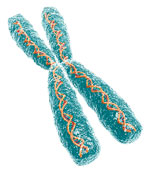Affecting Biopsy Decisions: Genetics of PSA Production

The more we know about PSA testing, the more useful the information is, but there is still room for improvement.
We now know that some men are high PSA producers and some are low PSA producers.
The estimate is that 40-45% of this variability in PSA levels is explained by inherited factors, what we are calling PSA SNPs.
A study supported by the Urological Research Foundation and published in the Journal of Urology reported that genetically induced production of PSA can affect the detection of and treatment decisions for prostate cancer.
Men with SNPs that increase the amount of PSA are more likely to undergo biopsy but less likely to be diagnosed with prostate cancer. And if they do have prostate cancer, they are more likely to be diagnosed with earlystage cancer at a younger age.
Men with SNPs that decrease PSA levels are less likely to be biopsied but when they are finally biopsied, they are more likely to have prostate cancer and more likely to have advanced disease at an older age.
This information could improve current protocol for using PSA test results for biopsy recommendations.
If we can confirm the SNPs affecting PSA levels, we can make genetic corrections in our biopsy recommendations by:
Raising the PSA value to recommend biopsy for men with genetically high PSA to reduce false positives and lowering the PSA value threshold for men with genetically low PSA to reduce false negatives.
The effect in number of biopsies could be huge because approximately one million prostate biopsies are performed in the US each year.
We’d have a 15-20% total reduction in biopsies, which means 150,000-200,000 fewer biopsies each year.
We’d have a reduction of 18-22% in false positives, which means 180,000-220,000 fewer false positives.
More research needs to be done in this area, but as personalized, SNP testing technology becomes more available – and it increases everyday – the possibility of including the information to streamline clinical decision-making becomes more likely.











